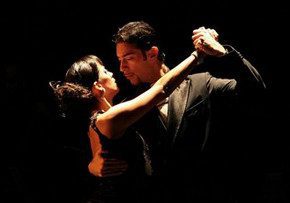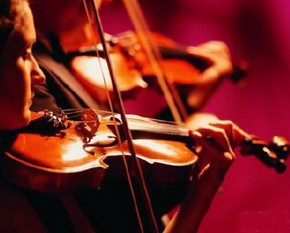RIMSKY – KORSAKOV: MUSIC OF THE THREE ELEMENTS – THE SEA, SPACE AND FAIRY TALES
Listen to the music of Rimsky-Korsakov. You won’t notice how you’ll be transported into the world of FAIRY TALES, magic, fantasy. “The Night Before Christmas”, “The Golden Cockerel”, “The Snow Maiden”… These and many other works by “The Great Storyteller in Music” Rimsky-Korsakov are permeated with a child’s dream of a fairy-tale life, of goodness and justice. Heroes of epics, legends, and myths come from the kingdom of music into your world of dreams. With each new chord, the boundaries of the fairy tale expand wider and wider. And, now, you are no longer in the music room. The walls dissolved and you – participant in the battle with sorcerer And how the fairy-tale battle with evil will end depends only on your courage!
Victory of Good. The composer dreamed about this. He wanted every person on Earth, all of Humanity, to turn into a pure, vice-free creation of the Great COSMOS. Rimsky-Korsakov believed that if Man learns to “look to the stars,” the world of people will become better, more perfect, kinder. He dreamed that sooner or later the Harmony of man and the boundless Cosmos would come, just as the harmonious sound of a “small” note in a huge symphony creates beautiful music. The composer dreamed that there would be no false notes or bad people in the world.
Another element sounds in the music of the great musician – these are the melodies of the OCEAN, the rhythms of the underwater kingdom. The magical world of Poseidon will forever enchant and fascinate you. But it is not the songs of the insidious mythical Sirens that will captivate your ears. You will be enchanted by the beautiful, pure music of the sea spaces glorified by Rimsky-Korsakov in the operas “Sadko”, “The Tale of Tsar Saltan”, and the suite “Scheherazade”.
Where did the theme of Fairy Tales come from in the works of Rimsky-Korsakov, why was he fascinated by the ideas of Space and Sea? How did it happen that these very elements were destined to become the guiding stars of his work? By what roads did he come to his Muse? Let’s look for answers to these questions in his childhood and adolescence.
Nikolai Andreevich Rimsky – Korsakov was born on March 6, 1844. in the small town of Tikhvinsk, Novgorod province. In Nikolai’s family (his family name was Niki) there were many renowned naval combat officers, as well as high-ranking government officials.
Nicholas’s great-grandfather, Warrior Yakovlevich Rimsky – Korsakov (1702-1757), devoted himself to naval military service. After graduating from the Maritime Academy, he guarded Russia’s water borders in the Baltic in the waters of St. Petersburg. He became a vice admiral and led the Kronstadt squadron.
Grandfather Niki, Pyotr Voinovich, chose a different path in life. He served the state in the civilian field: he was the leader of the nobility. But this is not why he became a legendary figure in the family. He became famous for his desperate act: he kidnapped his beloved without receiving consent from her parents for marriage.
They say that Nikolai, the future great composer, was given the name in honor of his uncle, Nikolai Petrovich Rimsky – Korsakov (1793-1848). He rose to the rank of vice admiral. He made several heroic sea voyages, including participating in a circumnavigation of the world. During the War of 1812 he fought on land against the French near Smolensk, as well as on the Borodino field and near Tarutino. Received many military awards. In 1842 for services to the fatherland he was appointed director of the Peter the Great Naval Corps (naval institute).
The composer’s father, Andrei Petrovich (1778-1862), reached great heights in the sovereign service. Became vice-governor of the Volyn province. However, for some reason, perhaps due to the fact that he did not show the required toughness towards freethinkers – opponents of the tsarist power, he was fired in 1835. from service with a very low pension. This happened nine years before Nika was born. The father went broke.
Andrei Petrovich did not take a serious part in raising his son. The father’s friendship with Nikolai was hampered by a huge age difference. When Niki was born, Andrei Petrovich was already over 60 years old.
The mother of the future composer, Sofya Vasilievna, was the daughter of a wealthy landowner Skaryatin and a serf peasant woman. Mom loved her son, but she also had a very big age difference with Niki – about 40 years. There was sometimes some tension in the relationship between them. The main reason for this was, perhaps, not even age-related problems. She was depressed lack of money in the family. She hoped that her son, perhaps even against his own wishes, would choose the well-paid profession of a naval officer when he became an adult. And she pushed Nikolai towards this goal, fearing that he would veer off the intended path.
So, Nika had no peers in her family. Even his own brother was 22 years older than Nikolai. And if we take into account that his brother was distinguished by a tough disposition (they named him Warrior in honor of his great-grandfather), they practically did not have any special spiritual closeness. Nika, however, had an enthusiastic attitude towards her brother. After all, the Warrior chose the complex and romantic profession of a naval sailor!
Life among adults, who have long forgotten their childhood desires and thoughts, contributes to the formation of practicality and realism in a child, often at the expense of daydreaming. Does this not explain the future composer’s craving for fairy-tale plots in his music? He tried to “live” in adulthood that wonderful fairy-tale life that was almost deprived of in childhood?
A rare combination of practicality and daydreaming for a young man can be seen in the famous phrase of Rimsky-Korsakov, heard in his letter to his mother: “Look at the stars, but don’t look and don’t fall.” Speaking of stars. Nikolai early became interested in reading stories about stars and became interested in astronomy.
The sea, in its “struggle” with the stars, “did not want” to give up its position. The adults raised the still very young Nikolai as a future commander, captain of the ship. A lot of time was spent on physical training. He was accustomed to gymnastics and strict adherence to the daily routine. He grew up as a strong, resilient boy. The elders wanted him to be independent and hardworking. We tried not to spoil. They taught the ability to obey and be responsible. Maybe that’s why he seemed (especially with age) to be a withdrawn, reserved, uncommunicative and even stern person.
Thanks to such a tough Spartan upbringing, Nikolai gradually developed an iron will, as well as a very strict and demanding attitude towards himself.
What about music? Is there still a place for her in Nika’s life? It must be admitted that, having started to study music, young Rimsky-Korsakov, in his dreams, still stood on the captain’s bridge of a warship and commanded: “Give up the mooring lines!”, “Take reefs on the boom topmast, jib and staysail!”
And although he began playing the piano at the age of six, his love for music did not arise immediately and did not soon become all-encompassing and all-consuming. Nika’s excellent ear for music and excellent memory, which she discovered early on, played in favor of music. His mother loved to sing and had good hearing, and his father also studied vocals. Nikolai’s uncle, Pavel Petrovich (1789-1832), whom Niki knew from stories of relatives, could play from memory any fragment from a heard piece of music of any complexity. He didn’t know the notes. But he had excellent hearing and a phenomenal memory.
From the age of eleven, Niki began to compose his first works. Although he will equip himself with special academic knowledge in this area, and then only partially, only after a quarter of a century.
When the time came for Nikolai’s professional orientation, neither the adults nor twelve-year-old Nika had any doubts about where to go to study. In 1856 he was assigned to the Naval Cadet Corps (St. Petersburg). School has begun. At first everything went fine. However, after a couple of years, his interest in music sharply increased against the background of dry disciplines related to naval affairs taught at the naval school. In his free time from studying, Nikolai increasingly began to visit the St. Petersburg Opera House. I listened with great interest to the operas of Rossini, Donizetti and Carl von Weber (Wagner’s predecessor). I was delighted with the works of M.I. Glinka: “Ruslan and Lyudmila”, “Life for the Tsar” (“Ivan Susanin”). I fell in love with the opera “Robert the Devil” by Giacomo Meyerbeer. Interest in the music of Beethoven and Mozart grew.
A major role in the fate of Rimsky-Korsakov was played by the Russian pianist and teacher Fyodor Andreevich Kanille. In 1859-1862 Nikolai took lessons from him. Fyodor Andreevich very highly appreciated the young man’s abilities. He advised me to start composing music. I introduced him to the experienced composer M.A. Balakirev and the musicians who were part of the “Mighty Handful” music circle he organized.
In 1861-1862, that is, in the last two years of study in the Naval Corps, Rimsky-Korsakov, on the advice of Balakirev, began, despite the lack of sufficient musical knowledge, to write his first symphony. Is this really possible: without proper preparation and immediately take on a symphony? This was the style of work of the creator of the “Mighty Handful”. Balakirev believed that working on a piece, even if it is too complex for a student, is useful because as music is written, the process of learning the art of composition occurs. Set unreasonably difficult tasks…
The role of music in the thoughts and fate of Rimsky-Korsakov began to dominate over everything else. Nikolai made like-minded friends: Mussorgsky, Stasov, Cui.
The deadline for completing his maritime studies was approaching. Nikolai’s mother and his older brother, who considered themselves responsible for Nikolai’s career, saw Nika’s increased passion for music as a threat to Nika’s naval profession. Strict opposition to the passion for art began.
Mom, trying to “turn” her son towards a naval career, wrote to her son: “Music is the property of idle girls and light entertainment for a busy man.” She spoke in an ultimatum tone: “I don’t want your passion for music to be to the detriment of your service.” This position of a loved one led to a cooling of the son’s relationship with his mother for a long period.
Much harsher measures were taken against Nika by his older brother. The warrior stopped paying for music lessons from F.A. Canille. To Fyodor Andreevich’s credit, he invited Nikolai to study with him for free.
Mom and older brother, guided by what they believed were good intentions, achieved Nikolai’s inclusion in the crew of the sailing clipper Almaz, which was preparing to sail on a long voyage across the Baltic, Atlantic Ocean and Mediterranean Sea. So, in 1862 Immediately after graduating with honors from the Naval Corps, midshipman Rimsky-Korsakov, at the age of eighteen, set off on a three-year voyage.
For almost a thousand days he found himself cut off from the musical environment and friends. Soon he began to feel burdened by this voyage among, as he put it, “sergeant majors” (one of the lowest officer ranks, which became synonymous with rudeness, arbitrariness, low education and low culture of behavior). He considered this time lost for creativity and musical education. And, indeed, during the “sea” period of his life, Nikolai managed to compose very little: only the second movement (Andante) of the First Symphony. Of course, swimming in a certain sense had a negative impact on Rimsky-Korsakov’s musical education. He failed to obtain full classical knowledge in the field of music. He was worried about this. And only when in 1871, already in adulthood, he was invited to teach practical (not theoretical) composition, instrumentation and orchestration at the conservatory, did he finally take up the first task study. He asked the conservatory teachers to help him acquire the necessary knowledge.
The thousand-day voyage, despite all the hardships and hardships, the isolation from the musical element that had become his native one, was still not wasted time. Rimsky-Korsakov was able to acquire (perhaps without realizing it at that time) invaluable experience, without which his work probably would not have become so bright.
A thousand nights spent under the stars, reflections on Space, high destiny The roles of man in this world, philosophical insights, ideas of enormous scale pierced the composer’s heart like falling meteorites.
The theme of the sea element with its endless beauty, storms and storms added color to the fabulous, enchanting musical palette of Rimsky-Korsakov. Having visited the world of Space, Fantasy and Sea, the composer, as if plunging into three fabulous cauldrons, was transformed, rejuvenated, and blossomed for creativity.
In 1865 Nikolai forever, irrevocably descended from the ship to land. He returned to the world of music not as a devastated person, not offended by the whole world, but as a composer full of creative strength and plans.
And you, young people, should remember that a “black”, unfavorable streak in a person’s life, if you treat it without excessive grief or pessimism, may contain grains of something good that may be useful to you in the future. Patience my friend. Composure and composure.
In the year of his return from sea voyage, Nikolai Andreevich Rimsky-Korsakov completed writing his First Symphony. It was first performed on December 19, 1865. Nikolai Andreevich considered this date the beginning of his composing career. He was then twenty-one years old. Someone can say whether the first major work appeared too late? Rimsky-Korsakov believed that you can learn music at any age: six, ten, twenty years old, and even a very adult person. You will probably be very surprised to learn that an intelligent, inquisitive person studies all his life, until he is very old.
Imagine that a middle-aged academician wanted to know one of the main secrets of the human brain: how memory is stored in it. How to write to a disk, and, when necessary, “read” all the information stored in the brain, emotions, the ability to speak and even create? Imagine that your friend a year ago I flew into space to the double star Alpha Centauri (one of the closest stars to us, located at a distance of four light years). There is practically no connection with him, but you need to communicate with him, urgently consult on one very important issue, known only to him. You take out the treasured disk, connect to your friend’s memory and in a second you get an answer! In order to solve the problem of decoding information hidden in a person’s head, an academician must study the latest scientific developments in the field of cerebral hypernano scanning of special brain cells responsible for the conservation and storage of impulses coming from outside. So, we need to study again.
The need to acquire more and more new knowledge, regardless of age, was understood by Rimsky-Korsakov, and many other great people understand it. The famous Spanish artist Francisco Goya wrote a painting on this topic and called it “I’m still learning.”
Nikolai Andreevich continued the traditions of European program symphony in his work. In this he was strongly influenced by Franz Liszt and Hector Berlioz. And, of course, M.I. left a deep mark on his works. Glinka.
Rimsky-Korsakov wrote fifteen operas. In addition to those mentioned in our story, these are “The Pskov Woman”, “May Night”, “The Tsar’s Bride”, “Kashchei the Immortal”, “The Tale of the Invisible City of Kitezh and the Maiden Fevronia” and others. They are characterized by a bright, deep content and national character.
Nikolai Andreevich composed eight symphonic works, including three symphonies, “Overture on the Themes of Three Russian Songs”, “Spanish Capriccio”, “Bright Holiday”. His music amazes with its melody, academicism, realism and at the same time fabulousness and enchantment. He invented a symmetrical scale, the so-called “Rimsky-Korsakov Gamma,” which he used to describe the world of fantasy.
Many of his romances gained great popularity: “On the Hills of Georgia”, “What is in Your Name”, “The Quiet Blue Sea”, “Southern Night”, “My Days Are Slowly Drawing”. In total, he composed over sixty romances.
Rimsky-Korsakov wrote three books on the history and theory of music. Since 1874 took up conducting.
True recognition as a composer did not come to him immediately and not by everyone. Some, while paying tribute to his unique melody, argued that he did not fully master operatic dramaturgy.
At the end of the 90s of the XNUMXth century, the situation changed. Nikolai Andreevich achieved universal recognition with his titanic work. He himself said: “Don’t call me great. Just call him Rimsky-Korsakov.”



